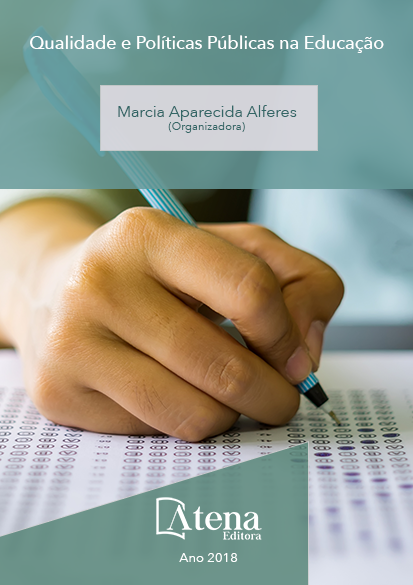
DESIGUALDADES SOCIOESPACIAIS E EDUCACIONAIS: UMA ANÁLISE A PARTIR DA POLÍTICA DE ZONEAMENTO ESCOLAR EM RIO BRANCO – AC
Apresentamos a análise realizada
sobre o Zoneamento Escolar em Rio Branco,
capital do estado do Acre, articulando o
desempenho educacional com o contexto
socioespacial, que caracteriza os bairros ou
regionais da cidade. O objetivo é identificar
e relacionar o contexto espacial intra e
extraescolar e os resultados educacionais
de cada zoneamento. O texto apresenta uma
das etapas de uma pesquisa maior, com
articulação entre sociologia da educação,
geografia e educação. Os resultados foram
construídos a partir da caracterização geral
dos zoneamentos escolares, no contexto da
cidade; coleta, tratamento de dados e análise
de indicadores educacionais por zoneamento;
análise do desempenho educacional e relação
com as características socioespaciais. Entre os
indicadores educacionais, trabalhamos com:
Ideb (Índice de Desenvolvimento da Educação
Básica), Seape/AC (Sistema Estadual de
Avaliação da Aprendizagem), Indicador de Nível
Socioeconômico (Inse), Indicador de Adequação
da Formação Docente da Educação Básica e
Índice de Condições Materiais das Escolas. Os
resultados da pesquisa evidenciaram que os
melhores desempenhos estão no zoneamento
onde há maior concentração de bens e serviços,
infraestrutura urbana e melhores rendas,
reforçando a hipótese que escolas localizadas
em áreas mais privilegiadas da cidade,
cujos alunos possuem melhores condições
socioeconômicas, tendem a ter melhores
desempenhos educacionais.
DESIGUALDADES SOCIOESPACIAIS E EDUCACIONAIS: UMA ANÁLISE A PARTIR DA POLÍTICA DE ZONEAMENTO ESCOLAR EM RIO BRANCO – AC
-
DOI: 10.22533/at.ed.96318191224
-
Palavras-chave: Zoneamento escolar; Desempenho educacional; Contexto socioespacial.
-
Keywords: School zoning; Educational performance; Context socioespacial
-
Abstract:
We present the analysis carried
through on the Pertaining to school Zoning in
Rio Branco, capital of the state of the Acre,
articulating the educational performance with
the socioespacial context, that characterizes
the regional quarters or of the city. The objective
is to identify and to relate the space context
intra and extrapertaining to school and the
educational results of each zoning. The text
presents one of the stages of a bigger research,
with joint between sociology of the education,
geography and education. The results had been
constructed from the general characterization of
the pertaining to school zonings, in the context
of the city; it collects, data handling and analysis
of educational pointers for zoning; analysis of
the educational performance and relation with
the socioespaciais characteristics. Between the educational pointers, we work with: Ideb (Index of Development of the Basic Education),
Seape/AC (State System of Evaluation of the Learning), Pointer of Socioeconômico
Level (Inse), Pointer of Adequacy of the Teaching Formation of the Basic Education and
Index of Material Conditions of the Schools. The results of the research had evidenced
that the best performances are in the zoning where has greater concentration of goods
and services, urban infrastructure and better incomes, strengthening the hypothesis
that schools located in more privileged areas of the city, whose pupils possess better
socioeconômicas conditions, tend to have better educational performances.
-
Número de páginas: 15
- Lucilene Ferreira de Almeida


